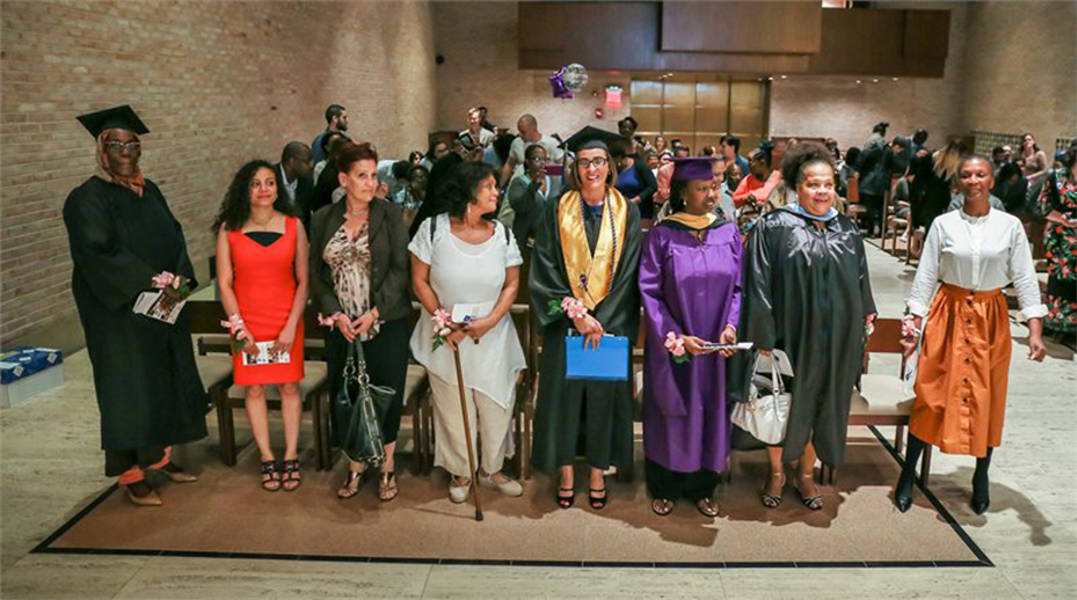
College & Community Fellowship: Helping women with criminal convictions earn college degrees
Everyone deserves a chance to grow through education. Unfortunately, this chance is denied to many women with criminal convictions, who struggle to access education during their incarceration or upon release.
College & Community Fellowship (CCF) works to change this through both direct services in New York City and advocacy and technical assistance on a national scale that help these women earn college degrees.
There are over 200,000 women incarcerated across the United States. They are disproportionately low-income and/or from communities of color. They’re likely to have been victims of abuse (90%), and more likely than men to be imprisoned on non-violent drug charges (40%). 60% have children under 18, and many more were primary caretakers prior to their incarceration. Yet because women make up less than 10% of the prison population as a whole, most criminal justice discourse centers around men by default, and the gender-specific needs of formerly incarcerated women often go unmet.
CCF advances solutions created by and for formerly incarcerated women, priming them not only to succeed individually but to become leaders on the issues that have affected them. This has been apparent from my first introduction to CCF through a panel of formerly incarcerated women who now held roles in criminal justice advocacy—although it had not been organized by CCF, every woman on the panel had been in CCF. CCF’s model encourages women to reach for the sky, but also to give back as both peers and mentors; in other words, to form a community.
The concept of community has remained strong through COVID-19. CCF has moved all their programming to remote platforms, but, despite the issues associated with virtual engagement, CCF has seen significant increases in the numbers of women attending their community meetings since March. Members describe the meetings not only as sources of valuable information and resources, but as a space to find comfort and support from peers in these isolated times. In addition to keeping students and alumni connected, CCF offers emergency assistance through their COVID-19 Student Emergency Support Fund. Like the formerly incarcerated population at large, many CCF members struggled with financial insecurity prior to the pandemic and this need has only increased.
Last June, I had the pleasure of attending CCF’s graduation ceremony. As that date nears again, I know that this year’s graduation will be different, with no congratulatory hugs or walks across the stage. Yet I imagine that even through screens, the joy of the moment will still be palpable. After all, as one student’s mortarboard read last year, “your story isn’t over”—in fact, for many CCF grads, it’s a whole new chapter.
Alex Simon-Fox
SNF Program Officer, New York
Recommended further reading:
Salon: Who understands "lockdown" and isolation? The formerly incarcerated are the experts we need now by Stacey Burnett, CCF intake, Recruitment, and Support Coordinator
Data Sources:
"Women's Mass Incarceration: The Whole Pie 2019", Prison Policy Initiative, 2019
"Incarcerated Women and Girls", Sentencing Project, 2019
“Incarcerated women: Poverty, trauma and unmet need”, American Psychological Association, 2019